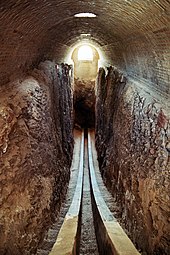


The exact sciencesorquantitative sciences, sometimes called the exact mathematical sciences,[1] are those sciences "which admit of absolute precision in their results"; especially the mathematical sciences.[2] Examples of the exact sciences are mathematics, optics, astronomy,[3] and physics, which many philosophers from Descartes, Leibniz, and Kant to the logical positivists took as paradigms of rational and objective knowledge.[4] These sciences have been practiced in many cultures from antiquity[5][6] to modern times.[7][8] Given their ties to mathematics, the exact sciences are characterized by accurate quantitative expression, precise predictions and/or rigorous methods of testing hypotheses involving quantifiable predictions and measurements.[9]
The distinction between the quantitative exact sciences and those sciences that deal with the causes of things is due to Aristotle, who distinguished mathematics from natural philosophy[10] and considered the exact sciences to be the "more natural of the branches of mathematics."[11] Thomas Aquinas employed this distinction when he said that astronomy explains the spherical shape of the Earth[12] by mathematical reasoning while physics explains it by material causes.[13] This distinction was widely, but not universally, accepted until the scientific revolution of the 17th century.[14] Edward Grant has proposed that a fundamental change leading to the new sciences was the unification of the exact sciences and physics by Kepler, Newton, and others, which resulted in a quantitative investigation of the physical causes of natural phenomena.[15]
Linguistics and comparative philology have also been considered exact sciences, most notably by Benjamin Whorf.[16]
[M]any of the exact sciences… between Claudius Ptolemy and Tycho Brahe were in a common register, whether studied in the diverse parts of the Islamic world, in India, in Christian Europe, in China, or apparently in Mesoamerica.
For the astronomer and the physicist both may prove the same conclusion: that the earth, for instance, is round: the astronomer by means of mathematics (i.e. abstracting from matter), but the physicist by means of matter itself.
| Authority control databases: National |
|
|---|
This philosophy of science-related article is a stub. You can help Wikipedia by expanding it. |
This history of science article is a stub. You can help Wikipedia by expanding it. |